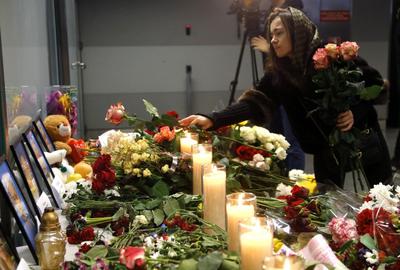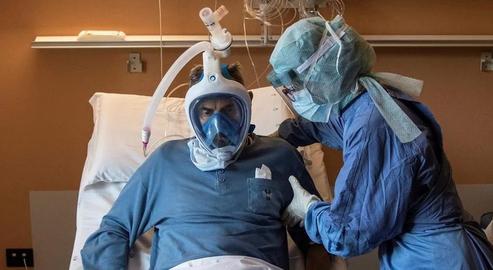Any journalist who’s spent time covering public affairs since approximately the 1990s will know the dread on being shuttled toward an officially-sanctioned press office after asking for a traditional interview. The more sensitive the issue, the less inclined certain public bodies seem to be to allow a named, responsible individual – one, lest we forget, that the public is probably paying for – to speak to the media about it themselves.
In our case, one might charitably attribute this to the fact that IranWire is a mid-sized media outlet compared to behemoths like, say, the BBC or CNN. Or the fact that our uncompromising and straight-talking stance on the colossal, documented human rights abuses of the Iranian regime makes some more would-be commentators feel queasy. But it means, in sum, that the Iranian people and the wider public are less well-informed and reassured than they otherwise might have been, and albeit unintentionally, it smacks of disregard.
Recently, we sought an interview on the Canadian government’s stance on the Revolutionary Guards’ shooting down of Flight 752 over Tehran in January 2020, which killed all 176 innocent souls onboard. This unspeakable horror has brought families' lives to a standstill, and re-routed many of them toward a single goal: securing justice and accountability for their loved ones, from young children to students to parents, who were killed aboard PS752 but should be with them today, living happy and fulfilled lives in safety.
Canada’s public stance on this has been laudible, but progress on pursuing justice and accountability has been slow. In late May, in a privately-brought case, the highest civil court in the country ruled that the two missiles had been fired on the plane by the IRGC in a deliberate act of terror. This was a huge early victory for families, and a legally-binding judgement.
In the aftermath of the ruling, family members who had been plaintiffs in the case were unanimous in their displeasure with what they perceived to be sluggish progress by the Canadian state in bringing the perpetrators to account for this atrocity: through such tangible mechanisms, for instance, as Magnitsky sanctions, the International Court of Justice or more tentatively, the International Criminal Court. Plaintiff Shahin Moghadam told IranWire that Canadian officials had told him personally they had enough evidence to know what happened that night, and so the delay was incomprehensible to him.
Naturally we wanted to hear Canada’s side, as well as an update on the planned next steps. The country is poised to publish its own forensic report into the tragedy, but there are other actions that could also be taken in the meantime given the welter of damning evidence from the court case, the Iranian regime itself and the UN. On Monday, we contacted the lawyer Payam Akhavan, who has now been appointed the Canadian government’s legal advisor on PS752. But we were asked to speak to the press office instead.
Two days later, on being prompted a second time, a media officer responded to ask what IranWire’s questions were. We sent the following, and on confirmation of receipt by a second individual, asked again for an interview with Payam or a responsible official.
The questions put to the government were:
- Does the Foreign Ministry accept last week's ruling by the Superior Court of Justice that the downing of Flight 752 was a deliberate act of terror?
- In light of the judgement, will the Canadian government consider designating the Islamic Revolutionary Guard Corps a terrorist entity?
- Is the Canadian government planning to take Iran to the International Criminal Court over the Flight 752 disaster?
- If so, on what grounds, what would be the ultimate aim and what will the next steps be in this process?
- If not, why not?
- The plaintiffs in the civil case said it took eight months for the government to serve legal papers on Iran after they requested it. Is this correct and if so, what caused the delay?
- What other avenues for legal redress are open to the Canadian government and Canadian citizens affected by the crash? For example, would the government consider imposing any further Magnitsky-style sanctions on those with a degree of responsibility for the tragedy?
The interview request went ignored but on Friday, we did receive a statement back from the media office as promised. It skirted the questions about further court action, sanctions and the IRGC and drew mostly on statements already made to the public, although it did helpfully address the eight-month delay in having served court papers to the Iranian regime. The full content, which we were told could be attributed to a spokesperson for Global Affairs Canada, is reproduced below:
“We are reviewing the Ontario Court decision closely.
“From the beginning, Canada has called for the Iranian regime to conduct a comprehensive and transparent investigation in accordance with international standards. Canada remains deeply concerned about the lack of convincing information and evidence provided by Iran. Canada is committed to obtaining the justice and accountability the families deserve.
“Canada’s Forensic Team is finalizing its analysis of all available information and intelligence on the circumstances that led to the downing of PS752 and its report will be made public shortly.
“In January and February 2020, Global Affairs Canada received requests pursuant to s. 9(2) of the State Immunity Act (SIA) to transmit two separate proposed class action claims to the government of Iran in connection with the downing of flight PS752. On September 1, 2020, the department certified to the court (per s.14(1) of the SIA) that transmission had been completed.
“Transmission was done in-country, in accordance with customary international law requirements. The length of time required to effect service was due to challenges posed by Canada’s lack of diplomatic presence in Iran and COVID-related issues.”
Lawyers in the civil case had said the office of Ayatollah Khamenei finally confirmed receipt of the court papers by email. This element aside, it was frustrating not to be able to update readers on the prospect of any tangible action by Canada. We and our readers remain no closer to understanding the clanging question of why the Guards are still not designated a terrorist entity in this country.
These exchanges take time in themselves. When inconclusive, they waste time. No one is at fault for this, least of all the press team, but it is exasperating that no single official in Canada was apparently sufficiently qualified or un-busy to answer these questions honestly, openly and contemporaneously over the course of five whole days.
Hamed Esmaeilion, a spokesman for the Association of Families of Flight PS752 Victims, who lost his wife and daughter in the crash, told IranWire the Canadian state might be keeping its cards close to its chest at the moment before the forensic report’s publication. Depending on the contents, any future application to the ICJ or ICC would be a long and arduous process, with many steps to be completed upfront, and there are wider geopolitical considerations afoot.
“I understand the frustration of family members,” he said, “and I share that feeling. They postponed the interviews with families [for the report] for 10 to 11 months because of Covid-19, and we have pushed the government to recognize the IRGC as a terrorist group but seen resistance there.
“It’s not just Canada; this is down to global politics while the five [UN Security Council founding member] countries are in Vienna for talks about the JCPOA. Everybody is supporting talks with Iran and the families and Canada are swimming against the current.
“We know it’s a very long road to justice and the truth. But we also know Iran isn’t going to cooperate; Iran doesn’t understand the language of diplomacy. Canada is a bureaucratic country and has to act based on international conventions. There is no other path.”
Related coverage:
Families' Triumph as Canadian Court Rules Flight 752 Downing Was an Act of Terror
UN Letter Reveals Catalogue of Violations in Iran's Handling of Flight 752 Disaster
Zarif Says Truth of Downed Ukrainian Plane May 'Never be Revealed' in Leaked Audio File
Military Prosecutor Concludes "Forgetfulness" Caused the Downing of Ukrainian Passenger Plane
Of Sorrow and Anger: The Families of Ukrainian Flight Victims Speak Out
Families of PS752 Victims Lay Flowers "Where our Children Took Their Last Steps"
19 Illegal Acts and Mistakes Committed by the Regime Since Shooting Down PS752
visit the accountability section
In this section of Iran Wire, you can contact the officials and launch your campaign for various problems




















comments